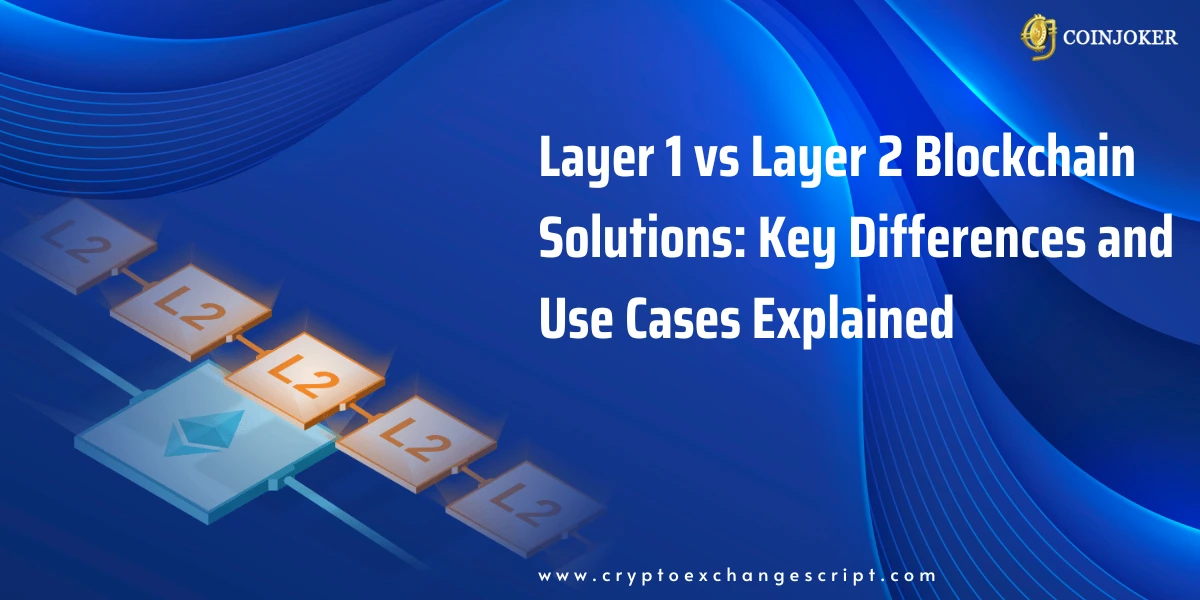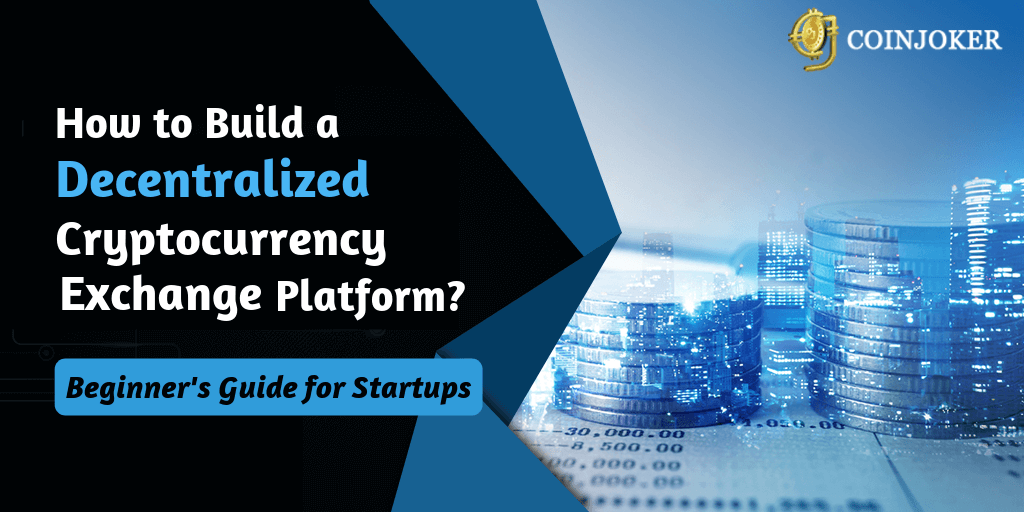Currently, Cryptocurrency and blockchain-based technologies are prospering! At this time, the vast majority of cryptocurrency exchanges are still centralized. Transactions and withdrawals of crypto coins are routed in a centralized closed manner and thus they are known as centralized exchanges. However, many cryptocurrency experts/ analysts believe that decentralized exchange is being the leading form of cryptocurrency exchanges where their technology and functionalities are far better than centralized exchanges. Therefore having a good DEX platform is valuable for the future of cryptocurrencies.
To Get a clear view on DEX, Let's go deep into the topic.
What is Decentralized Cryptocurrency Exchange?
A decentralized exchange (DEX) is a partially-automated cryptocurrency exchange platform where no intermediate third-party can hold customers’ personal information, account balances, portfolio allocations, and fund positions at any stage. In other words, there are no centrally-controlled servers, thus eliminating a single point of failure. A decentralized exchange is popular for trading any cryptocurrencies without the restrictions of centralized platforms. They allow users to buy and sell cryptocurrencies from each other without the involvement of a middleman.
Every decentralized cryptocurrency exchanges require users to register for an account before start trading. however once they have done creating an account they can list cryptocurrencies to sell, or buy someone else's, almost immediately.
The most common Decentralized exchange typically rely on a blockchain platform. This increasing utility of blockchain is moving the world to a trustless economy, thus removing the need for a middle man to exchange goods and services. The blockchain community understands the risks involved in trading cryptocurrencies and creates a better trading experience with Decentralized Exchanges. The main idea here is that traders can remain the custody of their funds.
source: Dapp University
Why Decentralized Exchange over Centralized one?
While decentralized exchanges offer tremendous benefits in their anonymity, security, and eliminates some of the risks possible in centralized exchanges, allows trading transactions to occur directly between the users in a P2P network through a trustless system.
DEXs eliminates the following risks applicable in centralized exchanges:
The following risks in centralized exchanges can be eliminated with decentralized exchanges,
1. Hacking
2. Server Downtime
3. Loss of Customer Funds
4. Failure of Exchange
5. High Probability of Market Manipulation
Many cryptocurrency traders have experienced the above issues while trading in centralized exchanges. DEX is supposed to resolve the above issues and hopefully providing the feasible alternative platform to centralized exchanges.
How does Decentralized Exchange work?
A P2P decentralized exchange works completely dependent on the software that powers it. All transactions operating in a decentralized platform are verified by cryptography, thus removing the need for an intermediate third party.
Generally, a decentralized exchange is a platform where both buyers and sellers can conduct transactions. For example, If someone is looking to buy/ sell anything on the exchange would deposit their money onto the exchange and can use it in the future to trade crypto coins from sellers. This makes way for the direct customer-merchant relationship without the need for a government authority or centralized. The lack of need for an intermediary also concluded with significantly fewer fees. Thus DEX is increasing in popularity with more and more people, exploring this new and interesting concept.
Advantages of Decentralized Exchange:
1. No single point of failure: Centralized exchanges serve as legal custodians responsible for each trade, all of which are maintained on traditional servers. Thus, centralized exchanges become a hugely attractive target for hackers. On the other hand, Decentralized exchanges, run on a distributed ledger and therefore do not face the risks involved in a centralized exchange process. keep their user's funds and personal data secure.
2. No single point of control: In a decentralized exchange, there is no way for anyone to “take control” of the trading system/ funds, making it much more resistant to censorship, government interference, and power games.
3. Secure: Security is another big advantage of DEX is that are distributed globally, thereby reduces the risks of server downtime as well as hacking.
4. Low Fees: Trading fees on Decentralized exchange platform are significantly low while compared to centralized exchanges. whereas some DEXs are even free. The users can only bear the cost of sending transactions over the blockchain.
5. Government-Resistant: As DEXs are open source codes operating on a decentralized network, making it extremely hard for any government to control it. since no governments can shutdown the regulations towards decentralized exchanges.
6. Trustlessness: The biggest advantage of a DEX is its ‘trustless’ nature, over-centralized exchange. In a centralized system, trust is required for an entire system. As for DEXs, no need to trust the company behind the decentralized since all transactions occur in a transparent and automated system.
7. Privacy: The privacy features provided in decentralized exchanges are increasingly rare to find in a centralized exchange. Unlike centralized exchanges requires KYC procedures, whereas trading on DEXs does not require to provide personal information.

Wandering to build your DEX Platform?
Before developing your DEX platform, look into the below key features...
Trade Engine:
Trade engine is the basis of any cryptocurrency exchange that collects all the information to match the perfect orders to find counterparties.
To create a trading engine, you need to understanding of blockchain technology as well as immersed programming skills, which takes long time and expense. But here you can save if you use open-source software, which will be of high quality and reliable.
Atomic Swap:
An atomic swap is a kind of peer to peer exchanges that works on blockchain, uses lightning network so the transaction fees for such operations are very low.
The exchange function is carried out almost instantly, although this does not change the fact that you need to wait for confirmation of the transaction.
Order book:
Decentralized platforms use Distributed Hash table instead of standard order books. As in the case of a decentralized blockchain, the information in such order books is encrypted and distributed among all nodes of the system. Therefore, it is significantly hard to change or steal it.
User interface:
The interface should be user-friendly, fault-tolerant and alluring in appearance. The user should easily understand how to make a trade, what needs to be done and how to access other functions etc.
Make sure your Admin Panel consists of these high-end features:
Ability to restore the accounts by assisting in case any problems arises.
The potential to instantly share digital assets.
Change of Trade fees.
Want to find the superior solution provider for DEX Exchange?
Hiring the right company with all these possible strategies can be a perfect solution. There are a plenty of development companies available in the market to get your work done.
We, Coinjoker had a team of professional blockchain developers, engaged in the development of Decentralized Cryptocurrency Exchange (DEX). We provide a variety of services to develop the Decentralized cryptocurrency exchanges based on cutting-edge technologies with the following features,
1. Two Factor Authentication- confirming the user's identity with private keys and a QR scanner.
2. Exchange of cryptocurrencies with smart contract development
3. API Integration
4. Payment gateway integration
5. Margin trading
6. Multi-language support
7. Cryptocurrency wallet for storing multi-cryptocurrency and fiat with multiple payments.
If you have questions on how to build a successful and efficient Decentralized Cryptocurrency Exchange (DEX) or want to build your DEX platform, contact us by filling out the form below...
We will be glad to help you!!!
Trending Blogs

Cryptocurrency Exchange
Accelerate Your Crypto Exchange Launch with a Ready-Made BingX Clone Script
Kickstart your crypto exchange quickly with our ready-made BingX Clone Script—fully customizable, ...

Blockchain
Layer 1 vs Layer 2 Blockchain Solutions: Key Differences and Use Cases Explained
Blockchain technology is transforming industries across the globe with its promise of decentralizati ...

Blockchain
Layer 2 Solutions: Scaling the Blockchain for the Future
As blockchain adoption accelerates across industries, one of the most pressing challenges has become ...

AI
Revolutionizing Business Operations Through AI Automation
In the generation of digital transformation, businesses are constantly searching for approaches to s ...

AI
AI Analytics: Powering Smarter Decisions in a Data-Driven World
In today's data-driven world, organizations are increasingly turning to Artificial Intelligence (AI) ...

AR/VR
Virtual Reality Training: Transforming Workforce Development Through Immersive Learning
In today's rapidly evolving technological landscape, Virtual Reality (VR) training has emerged as a ...

Blockchain
Central Bank Digital Currencies (CBDCs) and Blockchain: Transforming the Future of Money
The financial landscape is undergoing a revolutionary shift with the rise of Central Bank Digital Cu ...

AI
AIOps: Revolutionizing IT Operations with Artificial Intelligence
In today's digital age, businesses are increasingly reliant on IT infrastructure to ensure seamless ...

AI
Quantum Computing: The Future of High-Performance Computing
Quantum computing is no longer just a futuristic concept—it’s becoming a real force of change in ...

Cryptocurrency Exchange
Mastering Crypto Trading Strategies: A Guide for Traders
Cryptocurrency trading has revolutionized financial markets, offering traders lucrative opportunitie ...
